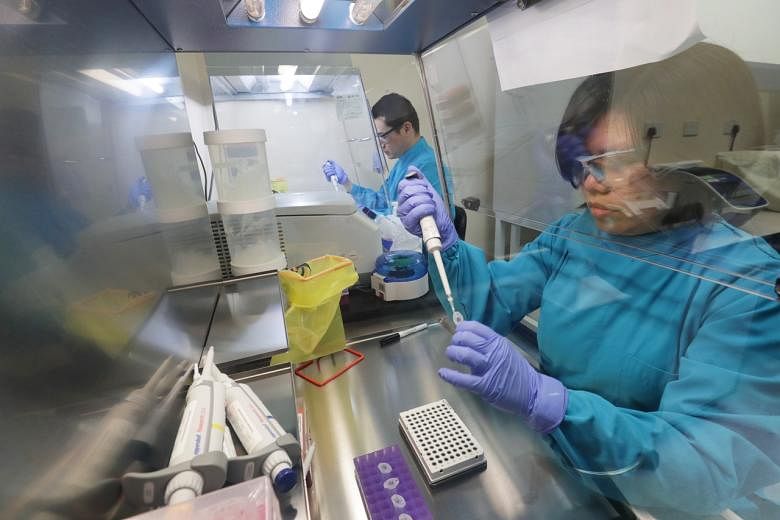Despite a global race to discover a safe and effective vaccine for Covid-19, there is still no guarantee that such a vaccine can even be developed.
It is also unclear if people who develop an immunity to the coronavirus that causes Covid-19 will have it permanently, infectious diseases expert David Heymann said yesterday during a virtual panel discussion on The Straits Times' daily news talk show, The Big Story.
Professor Heymann, an epidemiologist at the London School of Hygiene and Tropical Medicine, said people who catch other coronaviruses, such as those that cause the common cold, have been known to get re-infected with the same virus months after they recover.
This shows that any immunity they developed was short-lived, he noted, adding: "We don't exactly understand the immune response for this coronavirus at present. Hopefully, we will learn that as vaccine research goes on."
There are currently over 100 different efforts to develop a vaccine, noted Prof Heymann, but he warned that "we shouldn't put all our eggs in one basket".
"There are also other areas of research looking at the protection that might be offered from antibodies produced in survivors or in laboratories, and antiviral drugs," said the professor, noting that these other areas of research could also have an impact on the outbreak.
"What is most important is to use the tools we have now and make sure that we do the best we can, not wait for that vaccine which might not come."
Prof Heymann chairs the independent Strategic and Technical Advisory Group on Infectious Hazards, which advises the World Health Organisation (WHO) Health Emergencies Programme.
He said that even if a vaccine is developed, there are complex issues that the WHO must play a role in solving, such as deciding how to distribute it equitably and which populations should be vaccinated.
"Is the strategy to vaccinate the whole population, or to vaccinate only those populations at greatest risk?" said Prof Heymann. "There is a lot to be learnt between now and the time when a vaccine is available, if one does become available."
He said production capacities must also be taken into account as other vaccines, such as for measles, cannot be taken off the production line to make room for the Covid-19 vaccine without causing other problems.
He noted that the flu vaccine, for example, will play an important role in the fight against Covid-19, especially during the next flu season.
"That will protect people against the flu and make it easier to diagnose (Covid-19) because there would be fewer patients presenting with respiratory disease," Prof Heymann said.
He added that it is crucial to continue and increase the use of the flu vaccine in at-risk populations such as hospital workers and the elderly.
Professor Leo Yee Sin, executive director of the National Centre for Infectious Diseases, who was also on the panel, said she was "more optimistic" than Prof Heymann that a vaccine would eventually be developed.
"If you can have an effective, safe vaccine, it will be the best public health intervention strategy that we can put together for mass prevention," said Prof Leo.
But she said a widely available vaccine for the general population is "still some way away".
"In the interim, we have to utilise all the measures that we are familiar with," said Prof Leo.


